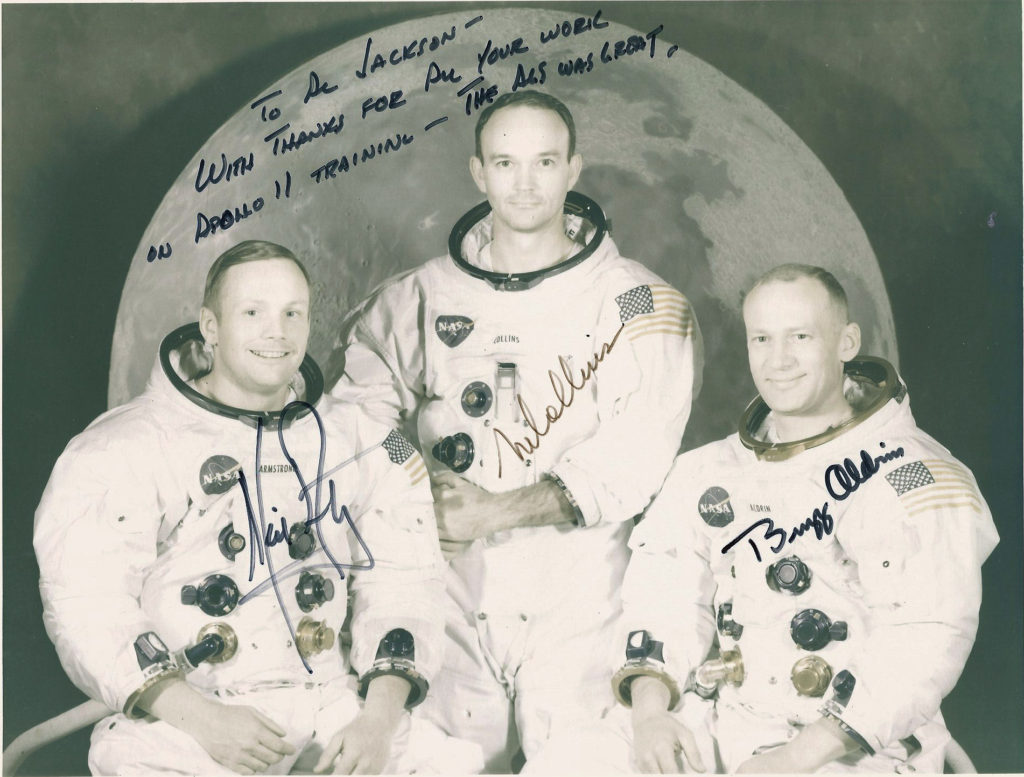Fifty years ago, July 20, 1969, Apollo 11 landed on the moon.
In 1957, America was flat-footed by the Soviet launch of Sputnik 1. The creation of NASA, Project Mercury and then Project Gemini followed in short order. Then came Apollo, conceived in 1960 under the Eisenhower Administration. On May 21, 1961, President John F. Kennedy stated the goal of landing a man on the moon and bringing him home again by the end of the decade.
The rest is history.
It was an American project, designed and built in America (with a significant assist from German scientists brought over as part of Operation Paperclip), but as the plaque left behind stated, it was undertaken for all mankind.
For all mankind, we came in peace. The stainless steel plaque that #Apollo11 left on the Moon bears a message with the signatures of Neil Armstrong, Michael Collins, Buzz Aldrin and U.S. President Richard Nixon. More: https://t.co/g4SaHvX1ff pic.twitter.com/cnzkcokseM
— NASA (@NASA) July 19, 2019
America was the most technologically advanced nation in the world in 1969, but it’s hard for most people to imagine how primitive the technology of the time was compared to what we have now. Most people still had black and white televisions, the networks not having changed over to full color until 1966. Most people still used rotary phones. The first message to be transmitted by ARPANET, the embryonic beginning of the Internet, would not be transmitted for several months. The Intel 4004, the first commercially available microprocessor, wouldn’t be available for for almost two years.
Against that background, landing a man on the moon was a herculean task. “At its peak, the Apollo program employed 400,000 Americans and required the support of over 20,000 industrial firms and universities.” It took 350 people just to write the software to run the guidance computer, and it was entered on punchcards.
My friend Al Jackson helped design and run the lunar module simulator I mentioned last week, and he was kind enough to send me a scan of this signed photo of the Apollo 11 astronauts (Neil Armstrong, Buzz Aldrin and Michael Collins).

Speaking of Collins:
Michael Collins took this picture. He was the third Astronaut on the Apollo 11 mission with Armstrong and Aldrin.
We see earth and the Lunar Module containing Armstrong and Aldrin.
Collins is the only human, alive or dead, not within the frame of this photo #MoonLandingLive pic.twitter.com/bxzrOE1TlD
— Orry Robinson (@OrryRobinson) July 13, 2019
More tweets:
Just had an excellent meeting with President Donald Trump! We discussed America’s future in space, ways to address space challenges, and the need to keep exploring beyond the horizon. Keep America Great in Space!! #Apollo50 #ApolloXI https://t.co/zv2LgoCheD
— Buzz Aldrin (@TheRealBuzz) July 19, 2019
50 years ago history was made when three American astronauts landed on the moon! It was great joining President @realDonaldTrump, @FLOTUS, @JimBridenstine, @TheRealBuzz & Michael Collins today to commemorate this special day in our nation’s history! #Apollo50th pic.twitter.com/PDBYN0Aaaa
— Vice President Mike Pence (@VP) July 19, 2019
The honor was all mine. Thank you for hosting us. https://t.co/fcnLdoV4uk
— Buzz Aldrin (@TheRealBuzz) July 19, 2019
It's 50 years since the launch of #Apollo11 – the first mission to successfully land humankind on the Moon.@stephensackur met pilot Michael Collins, who recalled Earth looking like a "fragile little thing" from space and urged better environmentalism #Apollo50 pic.twitter.com/iBtxZ8XPjV
— BBC HARDtalk (@BBCHARDtalk) July 16, 2019
From lift-off to splashdown was 197 hours:
The stages of the Apollo 11 mission #Apollo50th pic.twitter.com/BQ6pDlGbf1
— AFP news agency (@AFP) July 20, 2019
There’s a documentary, For All Mankind that’s well worth watching. The soundtrack consists solely of mission noises, the voices of the astronauts themselves, and music by Brian Eno, which was featured on his album Apollo: Atmospheres And Soundtracks, which includes probably his best piece, “An Ending (Ascent)”:
Tags: Apollo, Buzz Aldrin, Michael Collins, NASA, Neil Armstrong, Soviet Union, technology, video